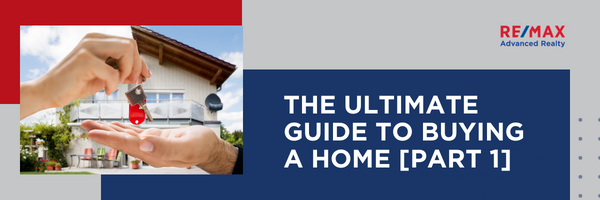The task of purchasing a property can be extremely difficult, whether you've done it before or not. The temptation is to either settle for the first house that fits your budget or to keep renting.
In this post, we’ll explore what you should think about before you buy, what to expect from the actual buying process, and some practical advice to make life easier once you move into your home to help you demystify the process and make the most of this purchase.
This will help you navigate the difficult process of getting started, setting a budget for a home, looking for one, inspecting it, understanding the fundamentals of buying, and obtaining a mortgage.
Factors To Consider Before You Buy
Your long-term goals are the first thing you need to decide. After then, think about how owning a home fits into those plans. Some people simply want to convert all those "wasted" rent payments into mortgage payments that result in equity. Others appreciate the thought of being their own landlord and view homeownership as a symbol of their independence. Then there is the problem of considering home ownership as an investment.
You can move in the right direction by focusing on a smaller range of your long-term homeownership objectives.
Buyers Guide To Buying A Home
WHICH HOUSE TYPE SUITS YOUR NEEDS THE BEST?
A classic single-family home, a townhouse, a condominium, a co-operative, or a multi-family complex with two to four units are all possibilities when buying a residential property. Depending on your ambitions for homeownership, every choice has advantages and disadvantages.
You must decide which kind of property will enable you to accomplish those objectives. By selecting a fixer-upper, you can also reduce the cost of your purchase in any category (although the amount of time, sweat equity, and money involved to turn a fixer-upper into your dream home might be much more than you bargained for).
WHAT FEATURES WOULD YOUR IDEAL HOME HAVE SPECIFICALLY?
You're making what may be the largest purchase of your life; while it's wise to keep some flexibility in your list, you still deserve to have it as near to your needs and wants as possible.
Your wish list should cover everything from the most fundamental considerations, such as neighborhood and size, to more specifics, such as bathroom design and the presence of reliable appliances in the kitchen. To find a new house that meets your needs and preferences, real estate websites can be an invaluable resource.
HOW MUCH OF A MORTGAGE CAN YOU AFFORD?
Knowing how much a lender will actually loan you to buy your first house is vital to know before you start looking. You might believe you can afford a $300,000 home, but lenders might only think you qualify for a $200,000 mortgage, depending on things like your overall debt load, your monthly salary, and how long you've had your current employment.
Before making an offer on a home, make sure to get pre-approved for financing. A lack of a mortgage pre-approval will frequently prevent sellers from even considering an offer. Furthermore, a lot of real estate agents won't waste their time talking to clients who haven't made it clear how much they can spend. Compare loan rates and costs for lenders as you start your search. After that, submit your mortgage application along with any supplemental materials your lender may need to confirm your debt and income.

WHAT SORT OF HOUSE CAN YOU REALLY AFFORD?
But occasionally a bank will provide you with a loan for a home that is more expensive than you actually wish to pay for. You shouldn't borrow $300,000 just because a bank says it will unless you really need to. Many first-time homebuyers make this error and end up "house-poor," which means that after paying their monthly mortgage payment, they have little money left over to cover other expenses like clothing, electricity, vacations, entertainment, or even food.
You should consider the entire cost of the house when choosing the size of the loan, not simply the monthly payment. The amount of homeowners insurance you'll need to buy, the amount you'll have to spend on upkeep or improvements to the house, the number of closing expenses, and the amount of property taxes in your preferred neighborhood are all things to take into account.
DO YOU HAVE SUBSTANTIAL SAVINGS?
Your down payment (3.5%–20% of the purchase price) and closing expenses will need a large upfront cash outlay, even if you qualify for a sizable mortgage.
One of the major obstacles when it comes to investing with a short-term objective in mind—buying a house—is maintaining assets in a reachable, reasonably secure vehicle that yet offers a return. A certificate of deposit (CD) might be an excellent choice if you have between one and three years to reach your goal. You won't get wealthy, but you won't lose any money either.
Buying short-term bonds or a fixed-income portfolio may be thought of in the same way; they will provide some growth while also shielding you from the volatile stock market.
You will want to keep the money liquid if you plan to buy a house within the next six to twelve months. The ideal solution might be a high-yield savings account. If the bank fails, you will still be able to access your funds up to $250,000 if it is FDIC insured.
WHO WILL AID IN YOUR SEARCH FOR A RESIDENCE AND DIRECT YOU DURING THE PURCHASE?
Your needs and your budget will be taken into account while a real estate agent helps you find properties. They'll then meet with you to show you those houses. These experts can help you with all aspects of the home-buying process after you've decided on a house to buy, including making an offer, obtaining financing, and filing the necessary paperwork.
Any mistakes you may run into during the process can be avoided thanks to the experience of a professional real estate agent. The majority of agents get compensated out of the sale proceeds as a commission.
These are just some of the questions you can ask yourself when buying a home. In Part 2, we’ll dive deeper into the process of buying a home.

